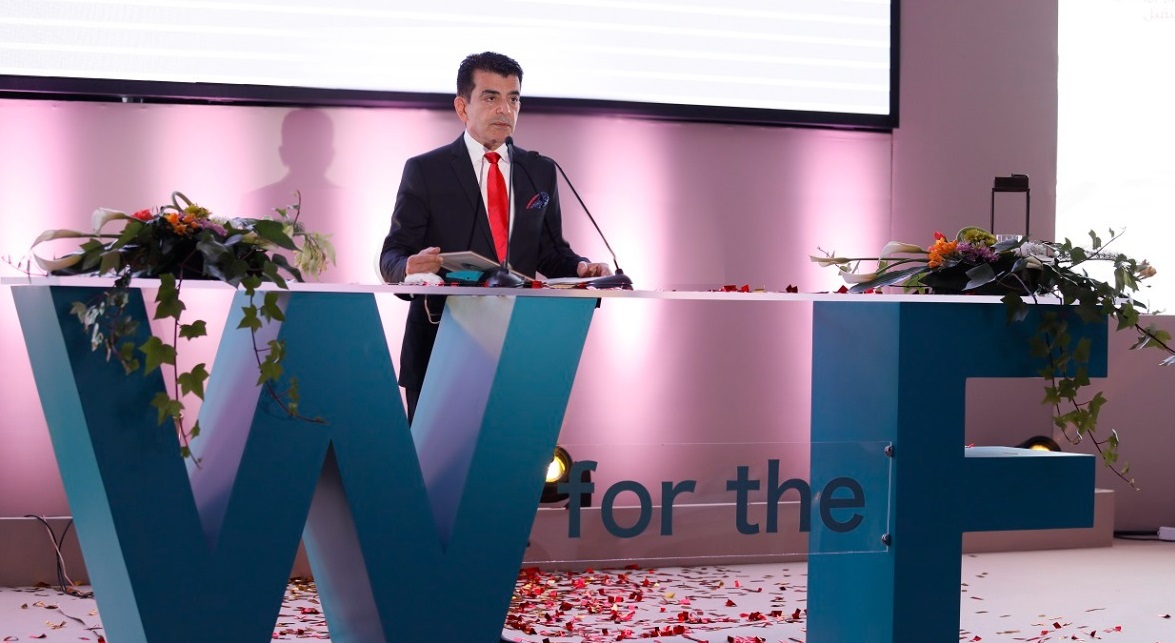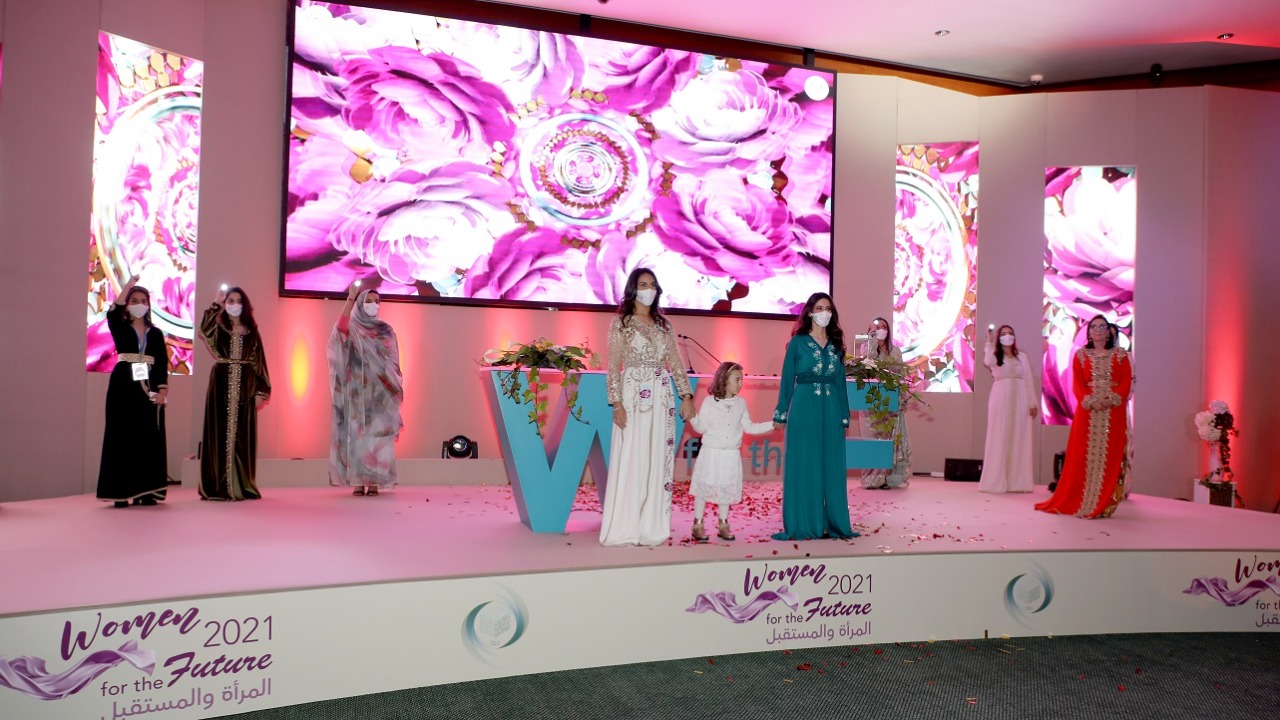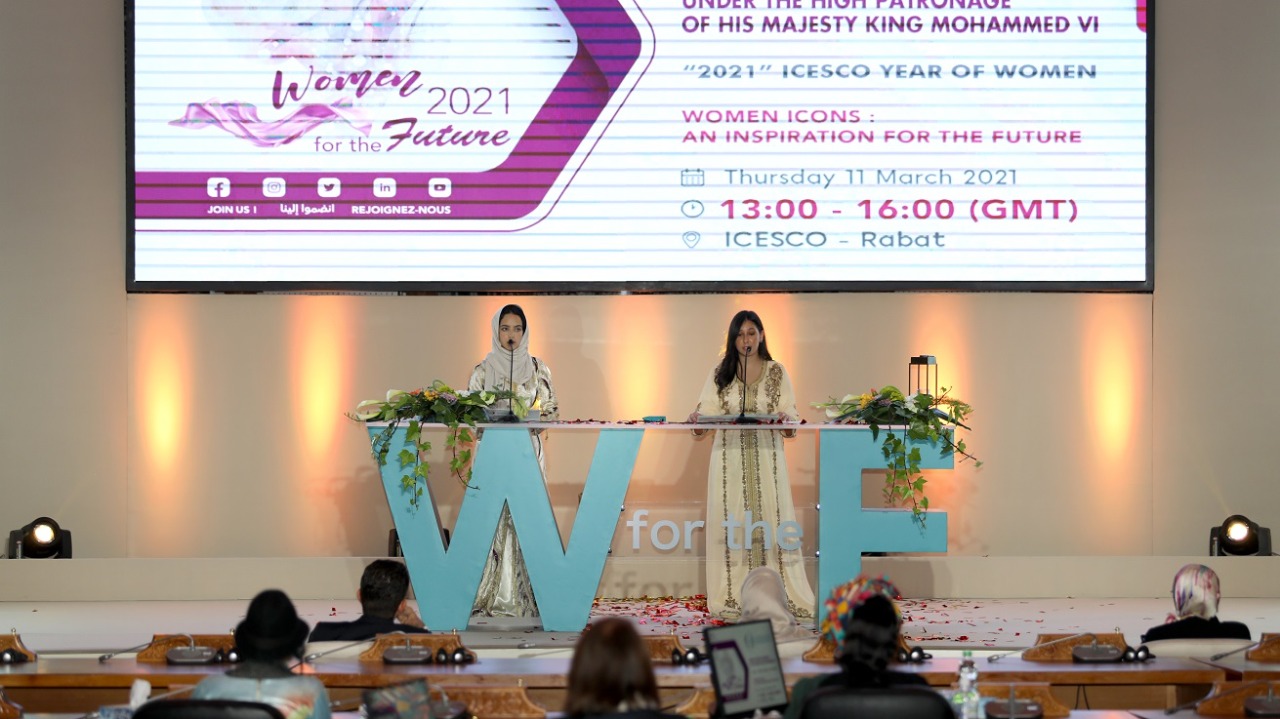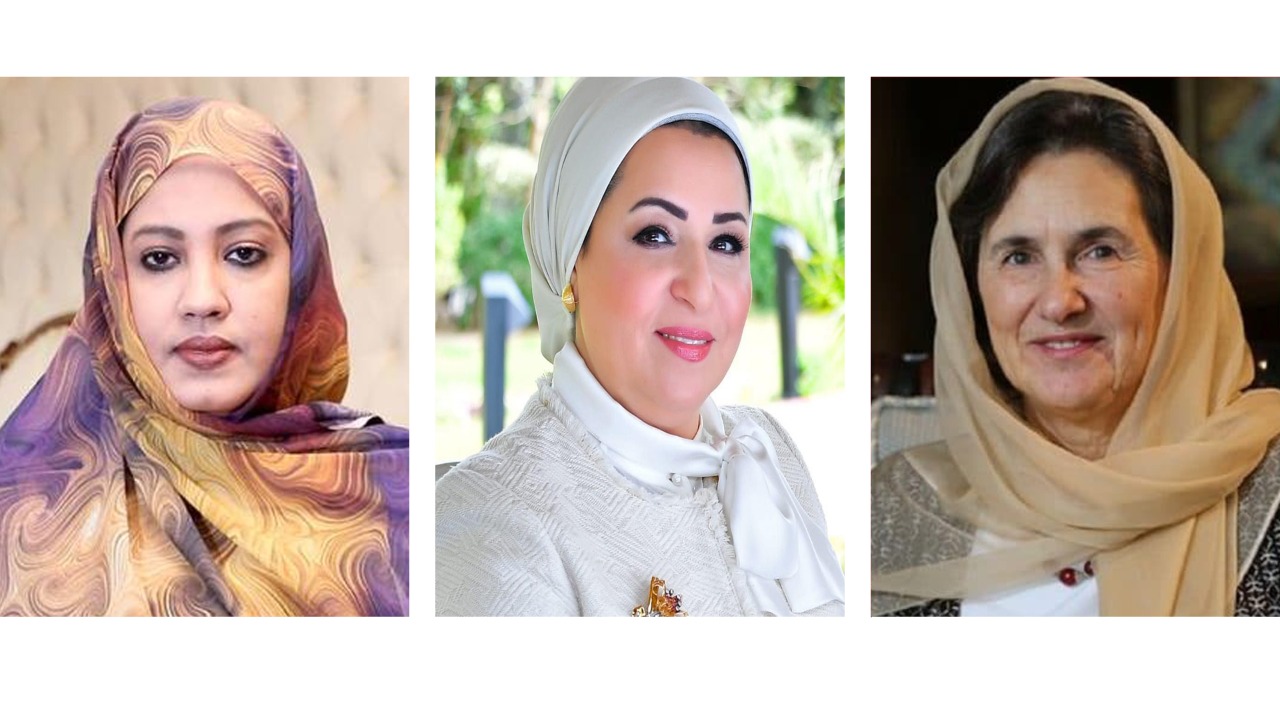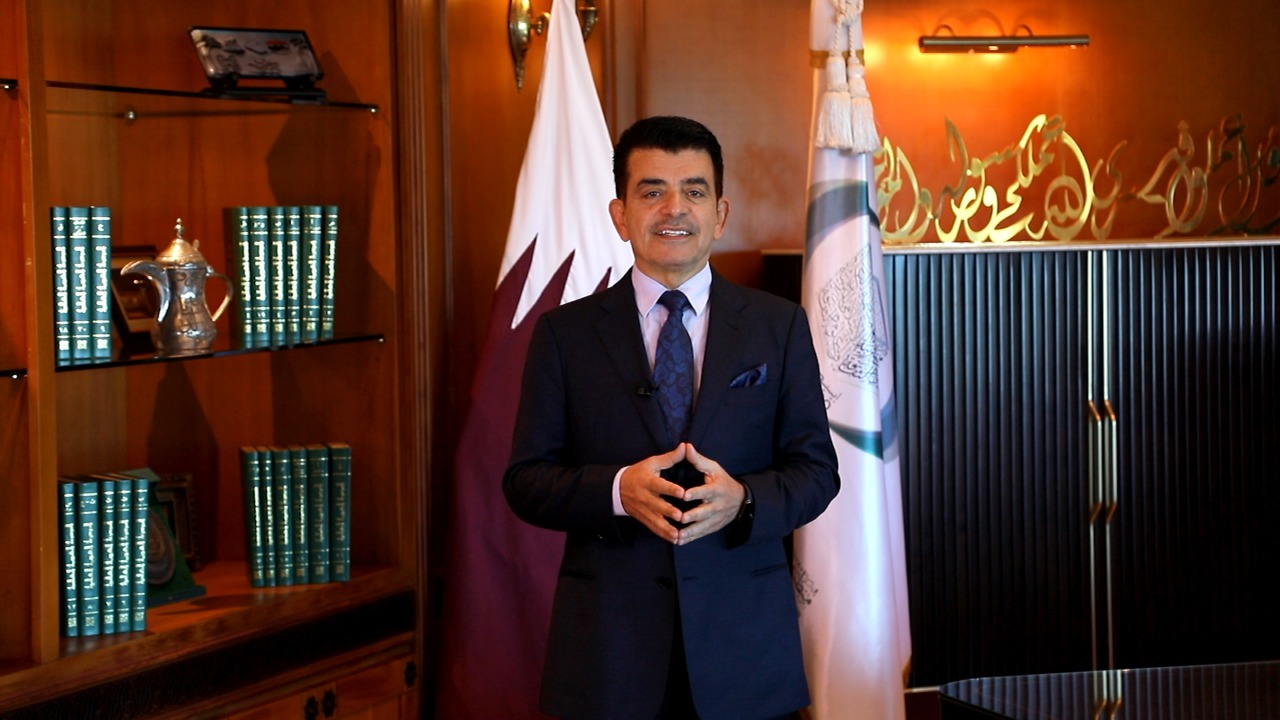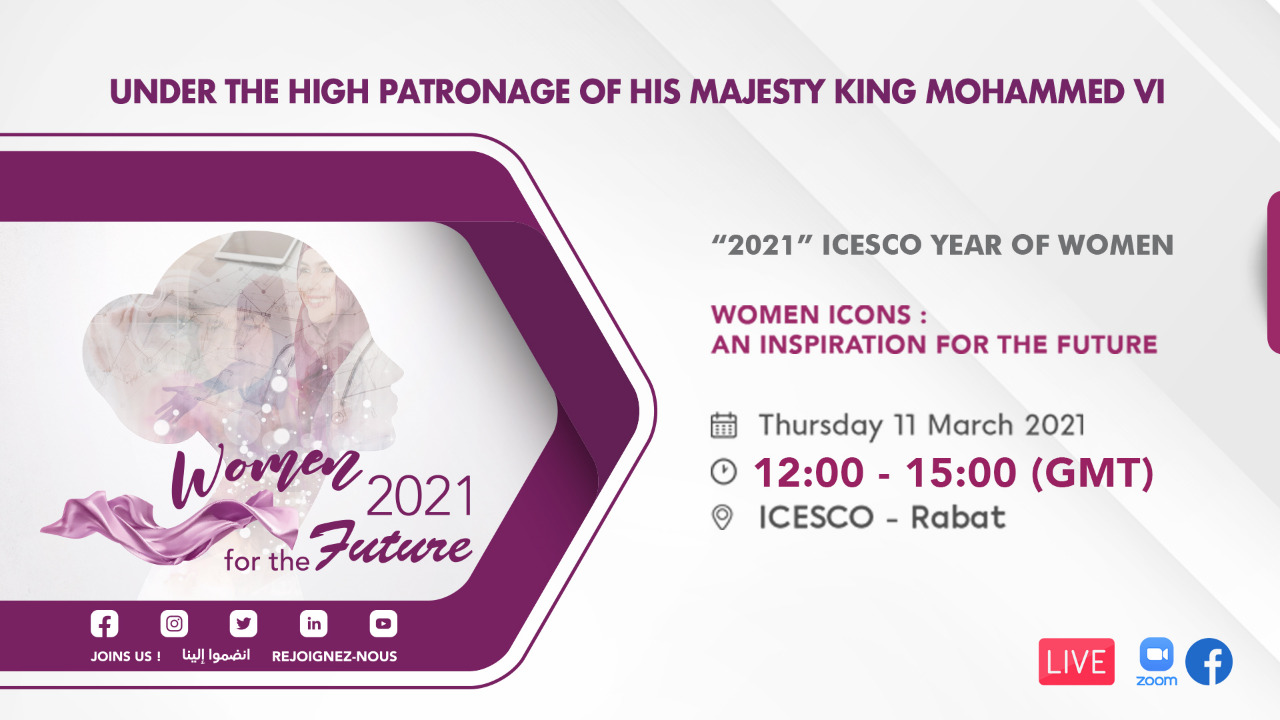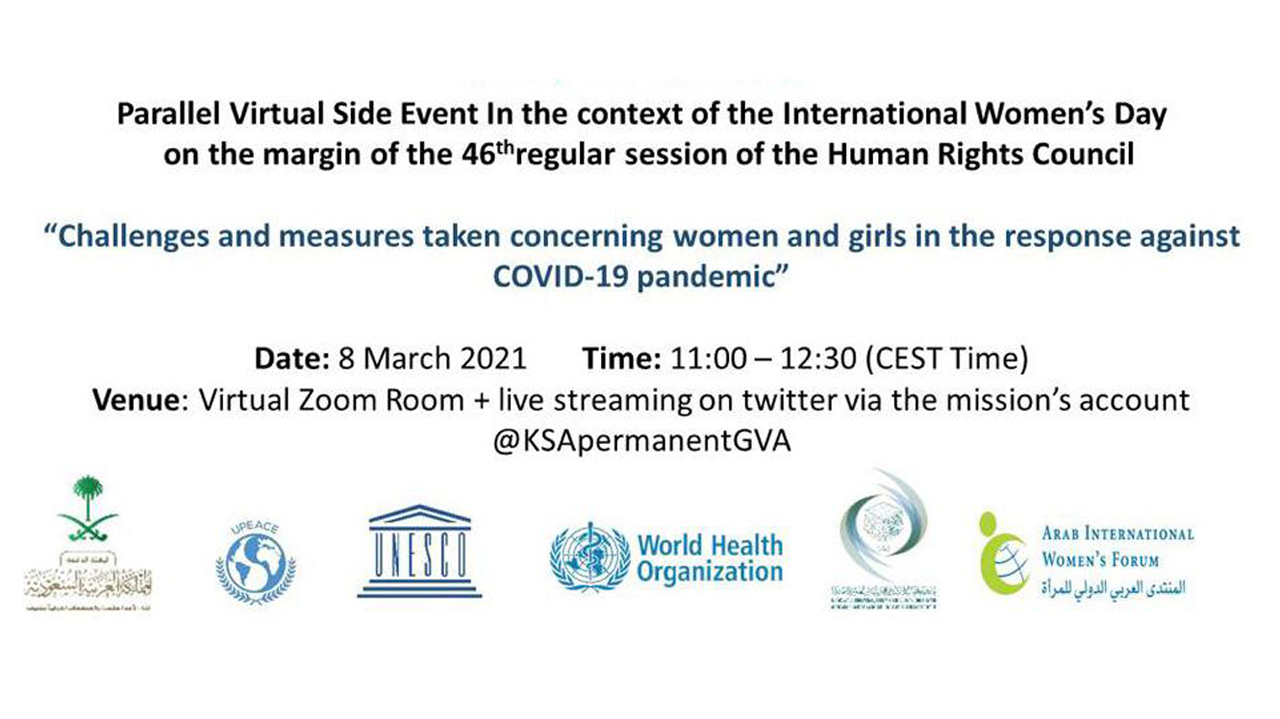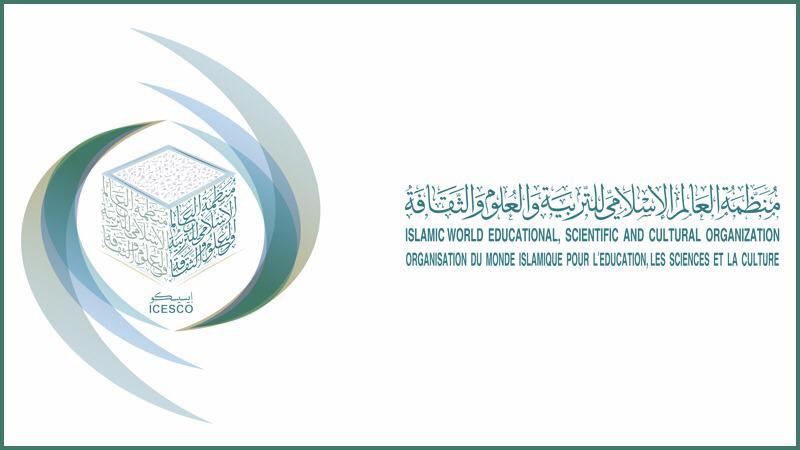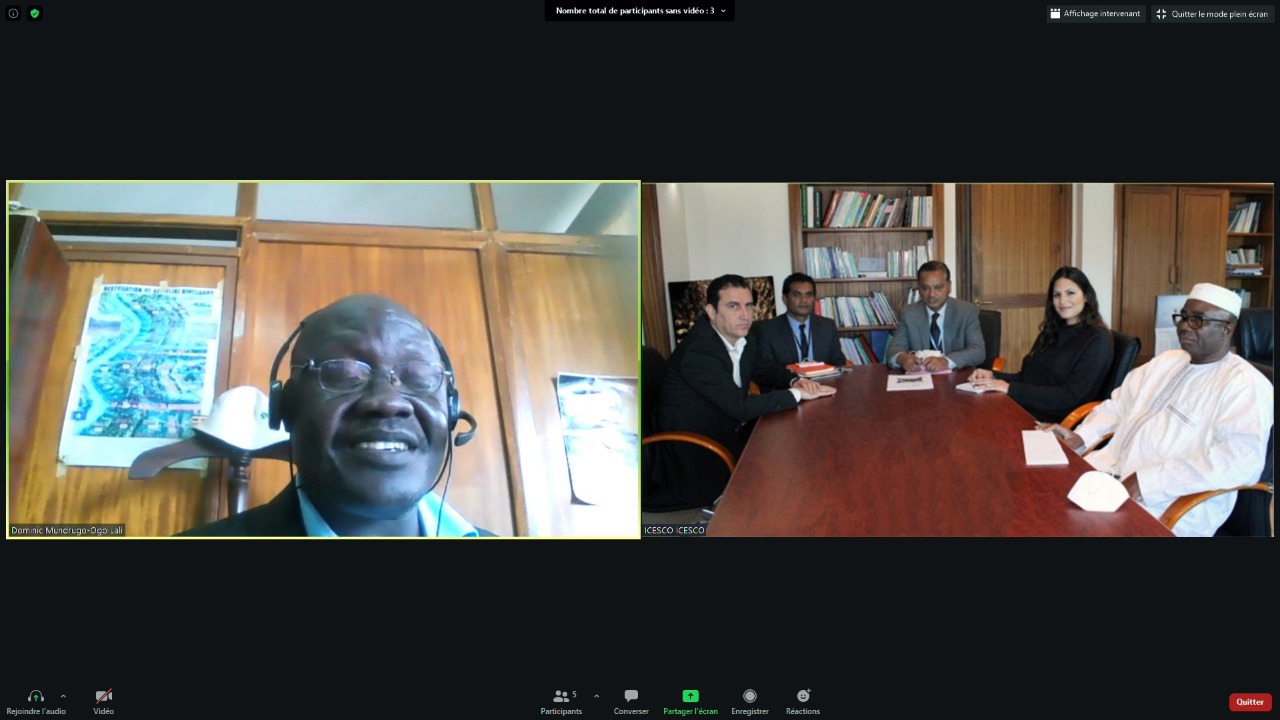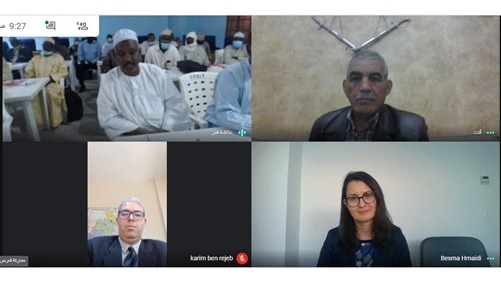The Islamic
World Educational, Scientific, and Cultural Organization (ICESCO) announced
officially in a major international celebration, the launch of ICESCO 2021 Year
of the Women, under the theme “Women For the Future” and under the high
patronage of His Majesty King Mohammed VI of Morocco.
The
celebration saw high-level participation of first ladies, princesses,
ministers, women leaderships from the United Nations and other international
organizations, several Moroccan male and female ministers, and public figures.
The opening
session of the celebration kicked-off with a recitation of verses from the Holy
Quran, a welcoming address to the participants, and a musical performance of a
poem that ICESCO produced dedicated to all women around the world in appreciation
of their pioneering roles in all fields.
Ms. Intissar
El-Sisi, the spouse of the Egyptian President, delivered an address wherein she
stated that the celebration comes in a culmination of women’s active
contribution over the past decades in all political, cultural, and
socioeconomic fields and participation in building civilization since its
inception.
She also
reviewed the efforts of the Egyptian government in the field of supporting
women and gender equality in recent years. Ms. El-Sisi closed her address by
reaffirming Egypt’s constant willingness to cooperate with ICESCO to ensure the
success of joint Islamic action in supporting women.
Addressing the
participants, Dr. Mariem Mint Dah, First Lady of Mauritania, noted that women
are a source of inspiration and innovation, either on the cultural, scientific,
or social level and that women’s education constitutes powerful leverage for
socioeconomic development.
Dr. Mariem
Mint Dah also appreciated the important role women played during the COVID-19
pandemic to counter its negative repercussions at all levels. She also
indicated that the road of women towards the future is not without obstacles
while stressing that the sought-after forward-looking vision must start with
women in all their facets, capabilities, talents, and sources of inspiration.
In her
address, Ms. Rula Ghani, First Lady of Afghanistan, praised the achievements of
Afghan women in all fields and stressed the need to stand with women, encourage
them to persevere, and strive to ensure they enjoy their right to healthcare
and education.
Dr. Madeeha
bint Ahmed al Shibaniyah, Minister of Education, readout the address of the
Sultanate of Oman, upon the high instructions of His Majesty Sultan Haitham bin
Tariq Al Said, Sultan of Oman, may Allah preserve him. The address stated that
ICESCO’s choice of “Women and the Future” as a theme for the Year of Women 2021
mirrors the appreciation and pride of ICESCO of women’s role in society,
confirmed by its tremendous efforts during the COVID-19 pandemic in the fields
of education, health and social care.
The Sultanate
of Oman’s address also reaffirmed the great confidence in ICESCO’s ability to
draw a clear roadmap of women leaders to future generations in all areas to
meet sustainable development requirements.
In her
address, Ms. Amina J. Mohammed, Deputy Secretary-General of the United Nations
and Chair of the United Nations Sustainable Development Group, expressed the
need for women to assume leadership positions. She also stressed that women
empowerment is key for building a brighter future for individuals and
communities. She lauded the efforts of the United Nations aiming to encourage
women to showcase their capacities and talents.
In his speech
at the celebration’s opening ceremony, Dr. Salim M. AlMalik, ICESCO
Director-General (DG), expressed his deep thanks and gratitude to His Majesty
King Mohammed VI for his high patronage of ICESCO’s Year of Women 2021 and
welcomed the participants at the headquarters as well as those who attended by
videoconference.
Dr. AlMalik
explained that the choice of 2021 to serve as a year of women was not
fortuitous but emanates from a desire to reward the merit of women and
recognize the pioneering roles they played and still play before and during the
COVID-19 pandemic, while stressing the Organization’s keenness to accord women
their rights, appreciate their status and highlight their societal role and
contribution to the future building.
The DG emphasized that ICESCO welcomes all
cooperation initiatives with bodies and institutions in the Member States and
with international organizations to enhance the pioneering role of women. He
announced a package of initiatives, projects and programmes the Organization
intends to implement throughout 2021, namely the establishment of a specialized
international platform that includes the most prominent influential and
inspiring female figures; the launch of a training programme to prepare 1000
young women leaders; cooperation programmes with the Member States to support them
to raise international indicators for women in line with their national
policies; and the support for orientations likely to achieve UN sustainable
development goals.
At the close
of the opening session, the “Light of the Future” was launched as a symbol that
marks the start of a new year with new hope: the Year of ICESCO for Women 2021.

